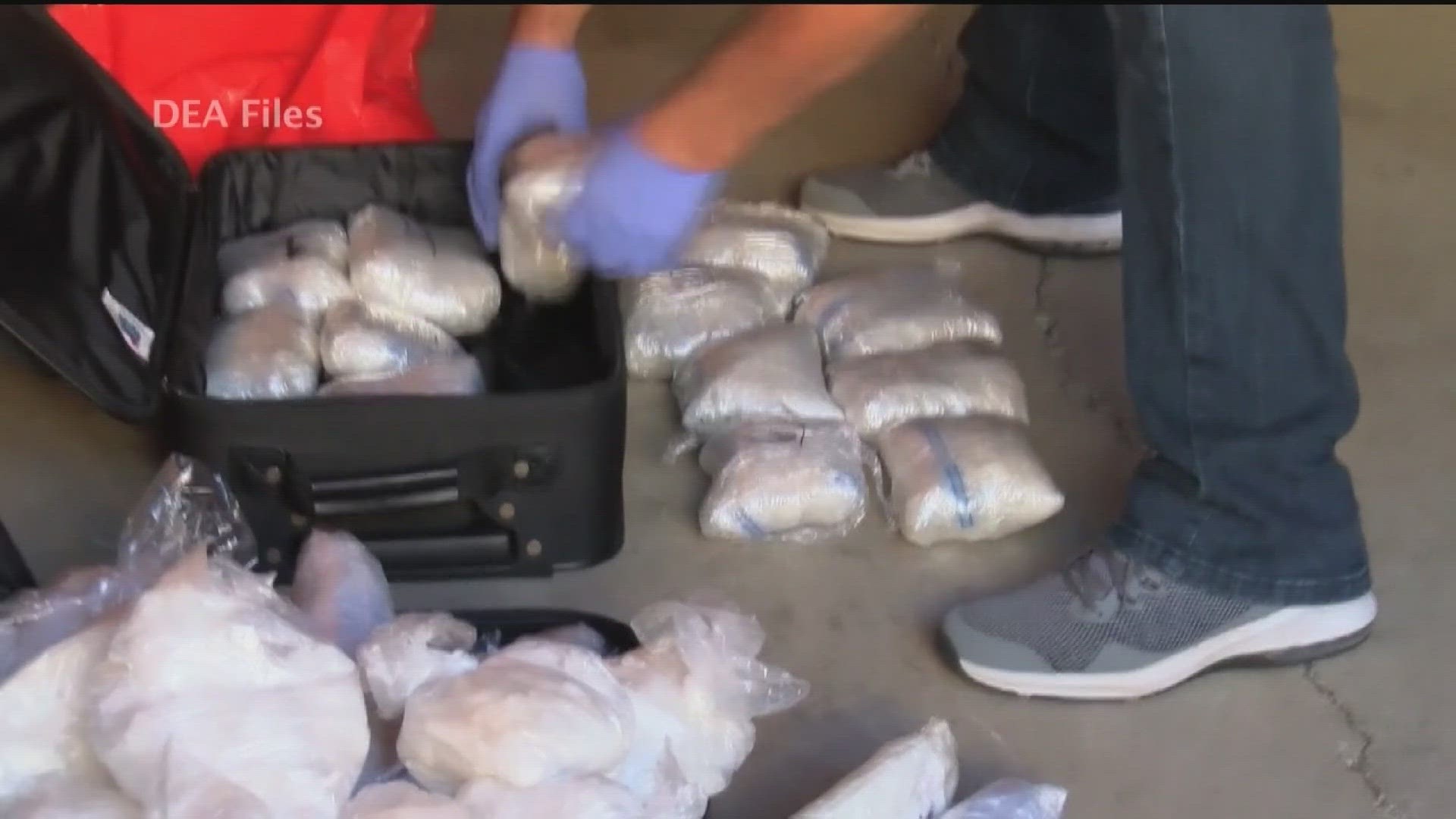GEORGIA, — President Joe Biden has granted clemency to 11 individuals currently serving long sentences for nonviolent drug offenses, including two individuals from Georgia, according to the U.S. Office of Public Affairs on Friday.
Anthony Ewing of Union City had been convicted of conspiracy to distribute cocaine and sees his 20-year sentence commuted to expire on April 20, 2024. A 10-year supervised release term remains unchanged.
Darryl Winkfield of Augusta had a life sentence for drug-related offenses. His sentence is now commuted to expire on April 20, 2024, with a 10-year supervised release term remaining intact.
"I am commuting the sentences of 11 people who are serving disproportionately long sentences for non-violent drug offenses," the president said. "All of them would have been eligible to receive significantly lower sentences if they were charged with the same offense today."
Emory University law professor John Acevedo said this helps bring sentencing up to modern standards, as most of the 11 people were sentenced years ago.
“It is more targeting individual cases, looking for righting wrongs where folks are over sentenced," Acevedo said.
Acevedo expects those commutations to cause more federal prisoners to try and have their sentences reduced.
“I think that's just reflecting our changing society, where for individual users and nonviolent drug offenders, we really don't want long sentences anymore," Acevedo said. "We want those reserved for violent crimes at this point.”
Biden also announced the pardoning of thousands of people who were convicted of the use and simple possession of marijuana on federal lands and in the District of Columbia, in what the White House called his latest round of executive clemencies meant to rectify racial disparities in the justice system. This includes those convicted of or currently awaiting trial on federal marijuana possession charges.
“What that will enable is those individuals to no longer have to report that they've had a conviction," Acevedo said. "It'll make them eligible for student loans and for federal housing, so for those individuals who are covered by this, it's going to be quite an impactful movement.”
Acevedo believes this sends a very strong message that the federal government is getting out of the business of prosecuting simple marijuana possession.
“It isn't a major shift, but it definitely signals a move towards dealing with only major players and the kind of cartels and those groups, not individual users," Acevedo said.
The categorical pardon Friday builds on a similar round issued just before the 2022 midterm elections that pardoned thousands convicted of simple possession on federal lands. Friday's action broadens the criminal offenses covered by the pardon.
Biden, in a statement, said his actions would help make the "promise of equal justice a reality."
"Criminal records for marijuana use and possession have imposed needless barriers to employment, housing, and educational opportunities," Biden said. "Too many lives have been upended because of our failed approach to marijuana. It's time that we right these wrongs."
No one was freed from prison under last year's action, but the pardons were meant to help thousands overcome obstacles to renting a home or finding a job. Similarly, no federal prisoners are eligible for release as a result of Friday's action.
But the order expands the grounds on which pardons are issued. In the last round, people were pardoned for simple possession under only one criminal statute. Friday's pardons also apply to several other criminal statutes, including attempted simple possession. Biden's order applies only to marijuana, which has been decriminalized or legalized in many states for some or all uses but remains a controlled substance under federal law. U.S. regulators are studying reclassifying the drug from the category of drugs deemed to have "no currently accepted medical use and a high potential for abuse," known as "Schedule I," to the less tightly regulated "Schedule III."
The pardon also does not apply to those in the U.S. unlawfully at the time of their offense.
Biden's proclamation effectively pardons the covered people, but they will need to submit applications to the Justice Department's pardon attorney office to receive certificates of pardon that can be used for housing and employment purposes.
Biden on Friday reiterated his call on governors and local leaders to take similar steps to erase marijuana convictions.
"Just as no one should be in a federal prison solely due to the use or possession of marijuana, no one should be in a local jail or state prison for that reason, either," Biden said.

